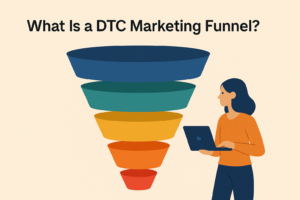The amount of clinical and administrative data that healthcare providers generate has seen explosive growth over the last few years. It presents both an opportunity and a challenge.
Healthcare providers can use the wealth of data to improve the safety and quality of their services, enhance efficiency, improve healthcare solutions, meet compliance requirements, and achieve many other short- and long-term objectives.
However, they must overcome data management challenges to benefit from the data. As data collected increases in velocity, volume, and value, they must organize fragmented data, integrate it, enable its analysis, and derive useful insights from it while ensuring privacy and security. It also needs to be accessible. That is where healthcare data management technologies and IT solutions come in.
What are healthcare data management technologies and IT solutions?
Firstly, medical data management, also referred to health data management, is the digitization and logical organization of medical data. Types of health data that a medical facility can digitize in a local manner include:
- Information from wearable and remote monitoring devices
- Patient lifestyle information
- Handwritten medical notes
- Patient enrolment data
- Claims data
- Healthcare programs a medical facility provides
- Electronic Health Records (EHR)
- Electronic Medical Records (EMR) derived from doctor visits
- Survey data about patient experiences
This data is efficiently processed, organized, cleaned and stored in a secure data management system. Medical data is protected under the Health Insurance Portability and Accountability Act (HIPAA) and must be kept safe to ensure privacy.
Healthcare data management technologies and IT solutions are therefore technologies that facilitate and manage the collection, storage, security, and analysis of medical data that healthcare providers generate. The technologies comprise various components, processes, and functions that extract value from data.
-Feb-02-2023-02-16-17-0271-AM.png?width=2240&height=1260&name=Blog%20Posts%20(5)-Feb-02-2023-02-16-17-0271-AM.png)
Why is healthcare data management important for medical enterprises?
Healthcare data management technologies and IT solutions do a lot more than organizing health data. They also integrate data and make it possible for medical professionals to analyze the data and derive valuable insights from that can help them improve patient care and obtain better medical outcomes.
In addition, healthcare data management systems and IT solutions can benefit patients, medical staff, and healthcare organizations in the following ways:
Lower patient costs
Good medical data management systems allow healthcare companies with their preventive initiatives, such as wearable monitors. They can save the patient many costs by notifying them of serious conditions before they worsen. A fast diagnosis also ensures they get treatment fast.
Better patient engagement
Medical professionals can target patients with reminders and care suggestions that could interest them based on predictive modeling. This ultimately leads to better patient engagement.
Better planning
The data can be used to forecast or analyze trends, which facilitates better future data-driven decisions, such as who to recruit and what equipment to invest in.
Improved health outcomes
Through trend analysis and forecasting, healthcare providers can be alerted of rising health issues and take proactive measures.
Goal alignment
Healthcare providers can analyze data on medical practitioners, such as success rates, to align their actions toward the organization’s objectives.
Reduce medical errors
According to research, medical errors are the third-leading cause of patient death. Most fatalities linked to medical errors occur due to inadequate information about patients and their ongoing medications. Thankfully, medical data management technologies reduce instances of medical errors, thus help to reduce deaths.
Improved coordination between departments
Medical data management technologies and IT solutions make it possible for different departments within a medical facility access and share information seamlessly. As such, the technologies play a critical role in the quality of services, efficiency, and, most importantly, treatment accuracy.
Lower operational costs
Technologies like cloud computing and containerization allows healthcare providers to store their data more securely and at a lower cost. Moreover, they reduce the likelihood of medical errors. Reduced medical errors mean that a medical facility will avoid medical malpractice and the costly legal battles that result from it.
Make more informed business decisions
Quality data and a holistic view of patient information help healthcare providers make better data-driven, high-impact business decisions, such as inventory forecasting, medical equipment purchasing and hiring.
Healthcare Data Management Challenges
In recent decades, healthcare data transitioned from traditional paper-based tracking to virtual, digitized information. Implementing healthcare data management system comes with some challenges, including:
- Inadequate integration of data across multiple systems. This is the ongoing challenge within healthcare, as different systems need to be able to talk to each other in order to get a comprehensive view of patient data.
- Fragmented data. Healthcare data is complex as it comes from multiple sources. To ensure the accuracy of predictions, the data needs to be processed, aggregated, cleaned and stored correctly. Poor quality data can lead to inaccurate diagnoses and treatments, which can have serious implications for patient safety.
- Data security. Every company with any form of database is at risk of cyberattacks. Attackers and cybercriminals target companies with weak cybersecurity practices to infiltrate their data for several illegal reasons. According to the Healthcare Data Breaches: Insights and Implications 2020 study, 64.65% of 249.09 million health records were exposed to cyberattacks and hacking.
- Regulations and compliance. Medical companies are subject to HIPAA regulations which require them to always comply with strict and complex rules. And as HIPAA Covered Entities (CEs), healthcare companies must utilize physical, administrative, and technical safeguards to protect health information data. Following all the regulations and compliance requirements can be quite challenging. Poor data quality and discovery issues make it more difficult to conduct the required audits and meet regulatory and compliance requirements, preventing the full potential of medical data from being achieved.
- Data changes. The healthcare industry is constantly changing in various ways, including new treatments, medications, and even new government regulations. This makes it difficult to keep medical data current and complete.
- Data overload. Healthcare data can be overwhelming. Healthcare organizations need to invest in the necessary IT infrastructure to manage data effectively. Without adequate data governance and tech ecosystem in place, healthcare organizations risk facing serious financial and reputational consequences.
If you use innovative data software and work with experienced IT specialists on your project, you can easily cope with these and other challenges efficiently.
IT solutions enterprises deploy to solve healthcare data management challenges
Healthcare data management is complex. It comprises several processes: data entry, storage, access, processing, security, intelligence, and predictive modeling. Some of the technology solutions medical enterprises implement to facilitate, inform, and streamline the processes include:
Data entry technologies
Medical enterprises use data entry technologies to collect and aggregate data from different systems and sources in various formats and store it in a central repository.
Medical professionals use IoT to remotely monitor their patients through wearable devices like heart monitors that use medical apps to connect to doctors. Healthcare professionals can collect the data and monitor them from home.
They also use customer-relationship management (CRM) platforms. CRM integration allows them to understand their patients’ needs to improve their experience. Open character recognition technology enables them to digitize text, which minimizes errors and the time it would take to enter the data manually.
There are several other data entry technologies that medical enterprises use to increase data accuracy, improve productivity, and enforce data security.

Data storage and access technologies
Healthcare providers use data storage and access technologies to be HIPAA compliant, automate tasks, improve security, and improve access. Instead of using traditional on-premise locations, they are shifting to cloud-based solutions.
Cloud data storage is flexible and has lower maintenance costs. It allows easy access to various stakeholders as more healthcare providers adopt a remote and hybrid work policy and mobile applications. Healthcare providers can increase or reduce their space as needed instead of investing in more on-premise servers.
Cloud-based storage and hosting solutions have a lower risk of data loss than on-premise servers, as the data is stored in multiple locations and is more secure.
Data processing, security, and fraud detection technologies
Real-time data processing is critical to medical care providers. But they must adopt new technologies and systems because the data they collect is too much for traditional systems to process. The data also comes from different sources and in various formats.
Artificial Intelligence and Machine Learning allow healthcare providers to diagnose more accurately and forecast disease progression. They work in real-time, improving the efficiency of the doctor and the outcome for the patients.
Due to the nature of medical data, medical professionals must ensure data security. They implement security technologies to control access and encrypt data during transmission and storage. They also monitor connected devices by creating a separate network for the Internet of Medical Things (IoMT).
Medical providers also use fraud prevention and detection systems to monitor activity for suspicious patterns and provide leads that can be inspected more closely to prevent them. Data-driven fraud detection aided by artificial intelligence offers higher fraud prevention and detection power and is cost-efficient.
Scalable data architectures
Healthcare providers generate an exponential amount of data every second and mine it for valuable insights. And as innovations and technologies become available to medical providers and patients, the data will only grow.
Medical professionals have adopted cloud computing and storage to plan for this inevitable growth. On-premise storage solutions are very limited, as healthcare providers would have to invest in physical storage and servers every few years to support the data growth. Cloud-based solutions come with subscription models that enable users to scale up or down without investing in new hardware.
Data intelligence and predictive modeling
Medical providers employ a range of analytical tools and methods to understand better the data they collect and derive more value from it. Through data intelligence, they improve treatment outcomes, personalize treatment, and recognize threats early to take preventive actions.
Medical misdiagnosis affects 12 million Americans every year. To improve accuracy, medical providers use data science technologies for applications like medical image analysis to interpret X-rays, MRIs, and mammographies. They identify patterns and detect diseases faster and more accurately through data intelligence than manually.
Through predictive technologies that use Artificial intelligence, healthcare providers can use patient records and other health data to proactively detect high risks of medical events and prevent them. They also use predictive modeling to lower the costs of internal healthcare processes and personalize treatment plans.
Choose the right it partner to integrate your IT solutions successfully
You need the right healthcare data management technologies and IT solutions to derive value from the data you collect. And because all healthcare providers have different needs and require different IT solutions, you need the right IT partner to guide you through your IT solutions integration.
When choosing the right IT partner, you must consider several factors, such as cost, features, implementation and training, integration, customer, and customer service, if you want a successful integration like Allergan’s. One partner you can rely on to manage, analyze and secure your medical data is Transcend Digital.
We are a full-service customer experience and digital marketing agency based in Los Angeles that helps brands of all sizes across all industries build a solid online presence and remain competitive. You can choose from a range of Transcend Digital Healthcare Software & IT Solutions that your medical company can use to achieve long-lasting leadership.
Our healthcare software engineering services include UX and UI design, API integration design, architecture build, product roadmap development, and compliant software development.
We engineer data management, patient care-centered, and medical device software for pharmaceutical companies, healthcare organizations, medical device manufacturers, and healthcare technology companies.
Contact us to learn more about how our digital solutions will benefit your organization.



